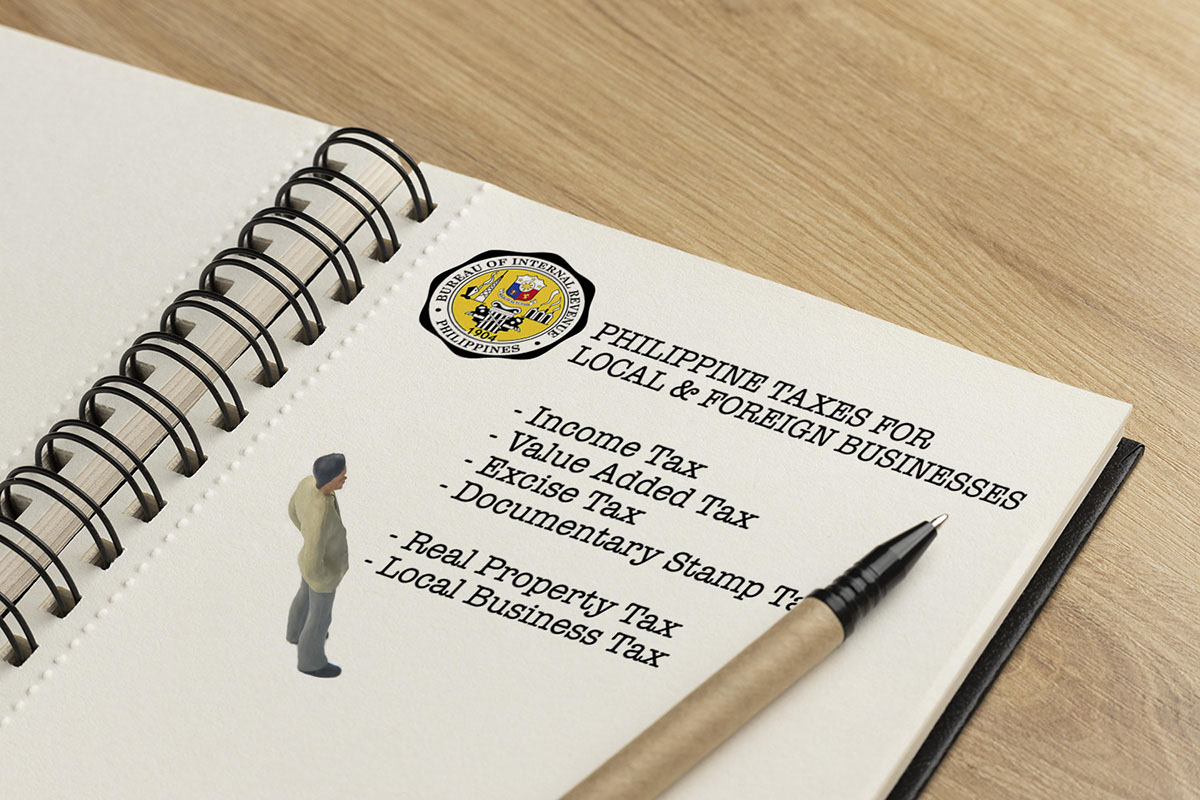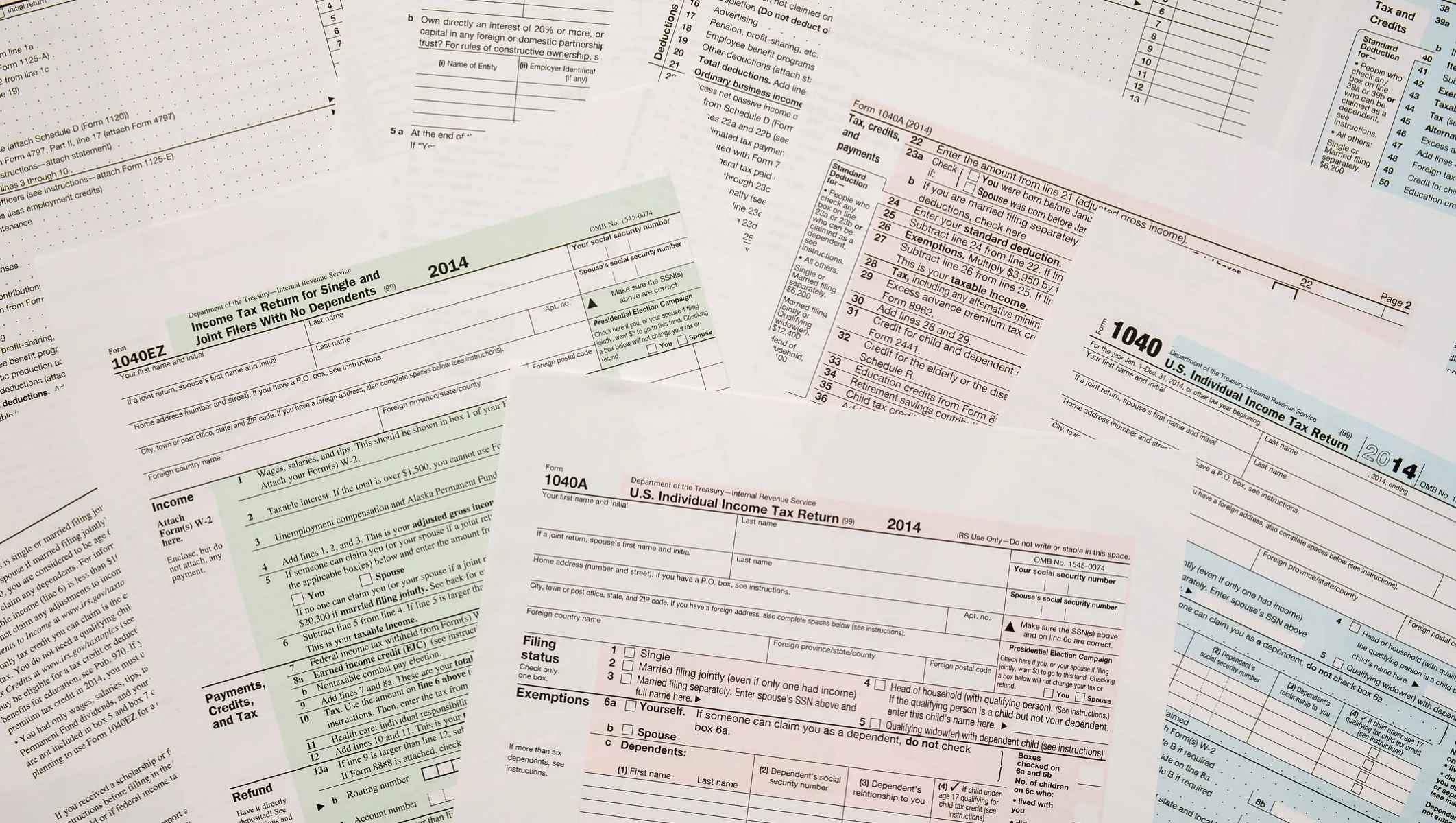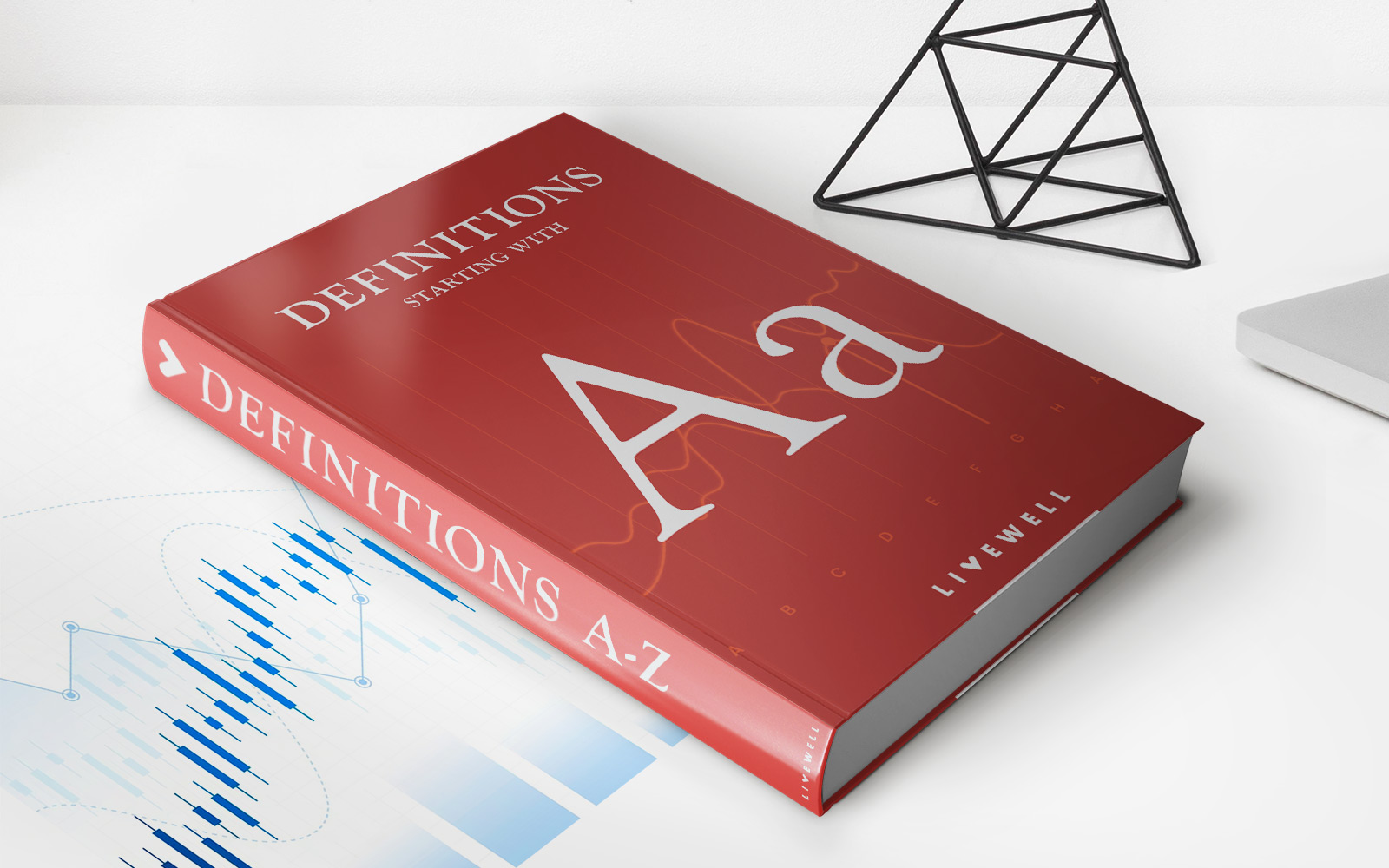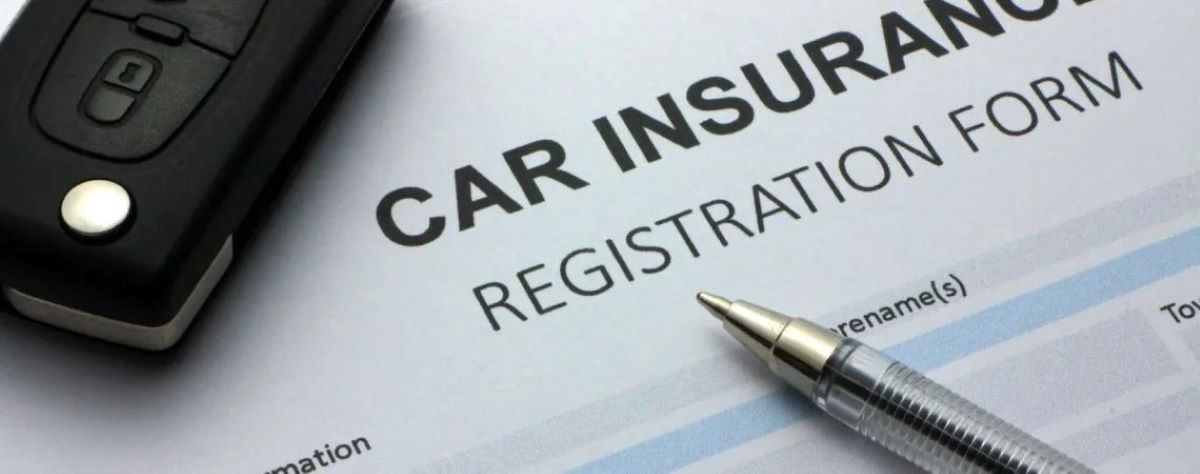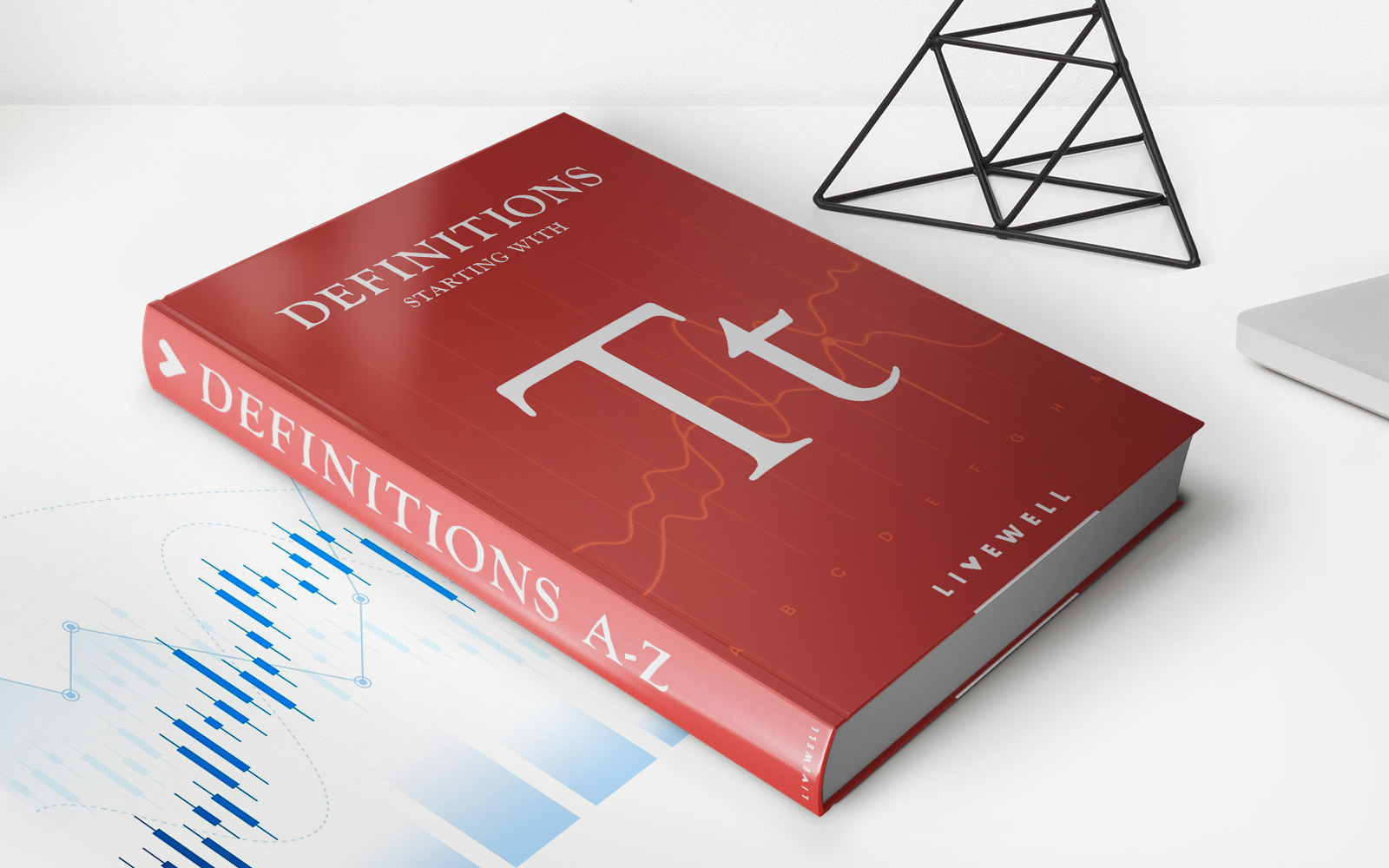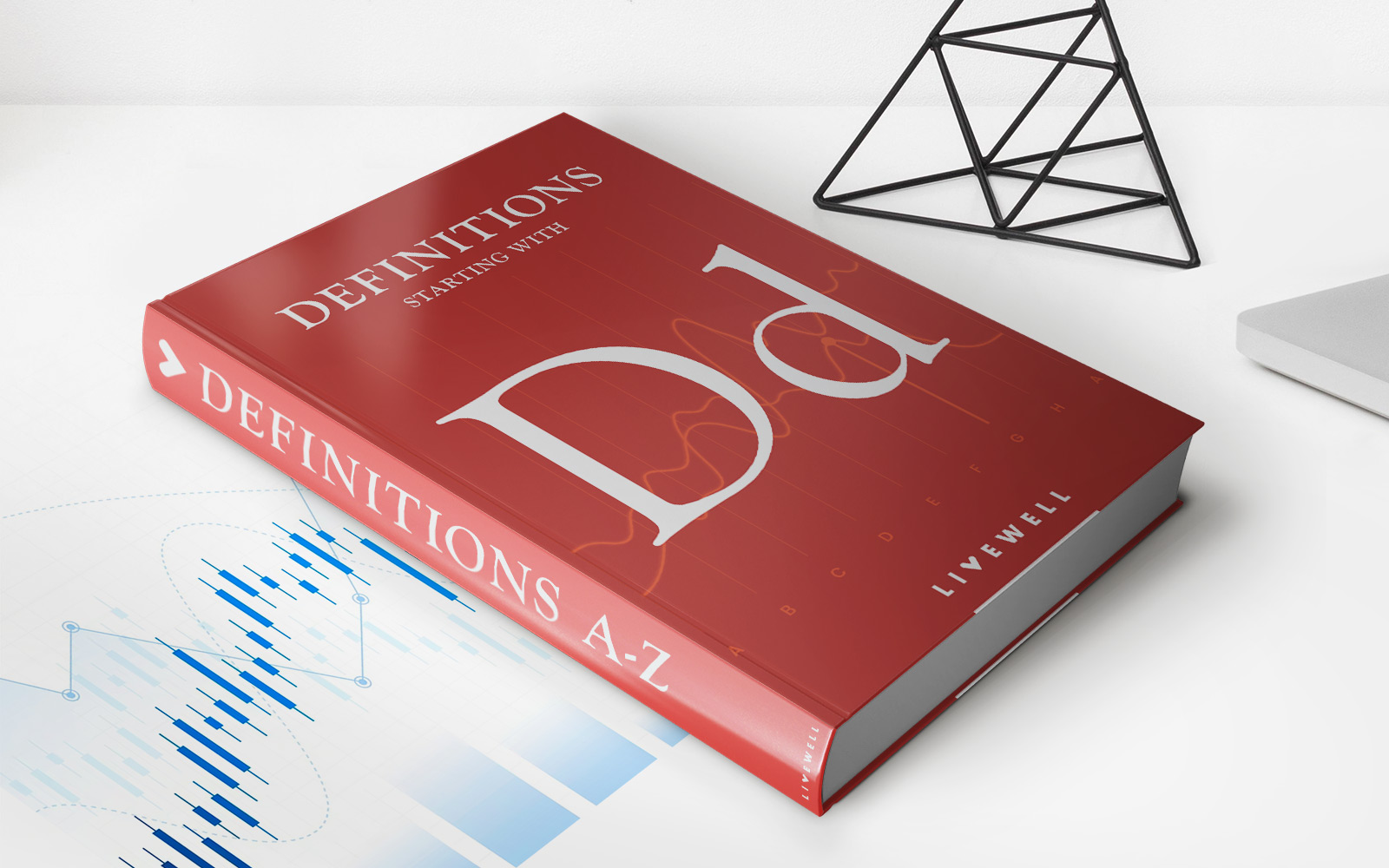

Finance
What Documents Do I Need For Estate Planning
Published: January 3, 2024
Looking for estate planning? Find out the essential documents needed to secure your assets and finances with our comprehensive guide.
(Many of the links in this article redirect to a specific reviewed product. Your purchase of these products through affiliate links helps to generate commission for LiveWell, at no extra cost. Learn more)
Table of Contents
- Introduction
- Last Will and Testament
- Revocable Living Trust
- Durable Power of Attorney
- Advance Healthcare Directive
- Beneficiary Designations
- Financial and Health Records
- Real Estate Documents
- Insurance Policies
- Business Documents
- Digital Property Inventory
- Guardianship Designation for Minor Children
- Final Thoughts
Introduction
Estate planning is a crucial aspect of financial management that many individuals overlook. It involves creating a comprehensive plan for the distribution of your assets and the management of your affairs in the event of incapacity or death. While it may seem daunting, estate planning is essential to ensure that your wishes are respected and your loved ones are taken care of.
However, before you embark on the estate planning process, it’s important to understand the various documents that are involved and their significance. This article will provide you with an overview of the key documents you’ll need for estate planning.
From a legal standpoint, the documents you create for estate planning are designed to protect your interests and ensure that your assets are distributed according to your wishes. These documents can also help reduce the burden on your loved ones during an already difficult time.
It’s important to note that while this article will provide you with a general understanding of the documents you’ll need for estate planning, it’s always best to consult with an estate planning attorney or a financial advisor to ensure that your plan is tailored to your specific needs.
Now, let’s explore the essential documents that are typically part of an estate plan.
Last Will and Testament
A Last Will and Testament, commonly known as a Will, is one of the foundational documents in estate planning. It is a legal document that allows you to specify how your assets should be distributed after your death. Having a Will can help ensure that your wishes are carried out and can simplify the probate process for your loved ones.
When creating a Will, you’ll need to designate an executor, who is responsible for managing your estate and ensuring that your instructions are followed. The executor should be someone you trust, such as a family member or a close friend.
In your Will, you can outline who will inherit your assets, including real estate, investments, personal belongings, and any other property you own. You can also name guardians for minor children, if applicable. It’s important to update your Will periodically as circumstances change, such as after major life events like marriage, divorce, the birth of children, or the acquisition of substantial assets.
While a basic Will may be sufficient for simpler estates, estates with more complex financial situations may benefit from additional estate planning tools, such as a trust.
Keep in mind that a Will can only dictate the distribution of assets that are solely in your name at the time of your death. It does not cover assets with designated beneficiaries, such as life insurance policies or retirement accounts, which are typically passed outside of the probate process according to their beneficiary designations.
To ensure that your Will is legally valid, it’s advisable to consult with an estate planning attorney who can guide you through the process and help you draft a Will that reflects your intentions and meets the legal requirements of your jurisdiction.
Revocable Living Trust
A revocable living trust, often referred to simply as a living trust, is another important document in estate planning. It is a legal entity that holds your assets during your lifetime and can be used to distribute those assets upon your death, without the need for probate.
Unlike a Will, a living trust takes effect immediately after it is created and funded. You can transfer the ownership of your assets to the trust, and as the trustee, you have full control over the trust’s assets. You can amend or revoke the trust at any time during your lifetime.
One of the main advantages of a living trust is that it allows for the seamless transfer of assets upon your death. Since assets held in a living trust do not go through probate, the distribution of your assets can be kept private and may occur more quickly compared to the probate process.
A living trust is particularly beneficial if you own property in multiple states, as it can help avoid the need for probate in each jurisdiction. Additionally, a living trust can be helpful in scenarios where you become incapacitated, as it provides for the management of your assets by a successor trustee without the need for court intervention.
Setting up a living trust requires creating a trust document and transferring your assets into the trust by changing the ownership to the trust’s name. It is important to work with an experienced estate planning attorney to ensure the trust is properly drafted and funded.
While a living trust offers numerous advantages, it may not be necessary for everyone. Consult with an estate planning professional to determine if a living trust aligns with your specific needs and financial situation.
Durable Power of Attorney
A durable power of attorney (POA) is a legal document that allows you to designate someone to handle your financial affairs on your behalf if you become incapacitated or unable to make decisions. This designated person, called an agent or attorney-in-fact, has the authority to act in your best interests and make financial decisions on your behalf.
A durable power of attorney can be limited to specific tasks or grant broad powers to manage your finances and assets. It is essential to choose a trustworthy and responsible individual as your agent, as they will have significant control over your financial matters.
Having a durable power of attorney in place can help avoid the need for a court-appointed guardian or conservator in the event of incapacity. It provides a seamless transition of decision-making authority in financial matters and ensures that your affairs will be managed according to your wishes.
It is worth noting that a durable power of attorney ceases to be effective upon your death. At that point, the executor of your estate, as appointed in your Will, takes over the management of your assets.
When creating a durable power of attorney, it is important to consult with an attorney who specializes in estate planning to ensure that the document is properly drafted and complies with the laws of your jurisdiction. Additionally, it’s crucial to regularly review and update your power of attorney to reflect any changes in your circumstances or preferences.
By having a durable power of attorney in place, you can have peace of mind knowing that your financial matters will be handled by someone you trust and that your best interests will be protected in the event of incapacity.
Advance Healthcare Directive
An advance healthcare directive, also known as a living will or healthcare power of attorney, is a legal document that specifies your healthcare preferences and designates someone to make medical decisions on your behalf if you are unable to do so. This document ensures that your medical wishes are respected and helps guide your healthcare providers and loved ones in making decisions in line with your values and beliefs.
In an advance healthcare directive, you can outline your preferences for medical treatments, such as life-sustaining measures, resuscitation, pain management, organ donation, and end-of-life care. This document allows you to express your desires for medical interventions or to provide instructions on when you would like certain treatments to be withheld or withdrawn.
Choosing a healthcare agent is a critical aspect of this document. The agent, often referred to as a healthcare proxy or durable power of attorney for healthcare, will make medical decisions on your behalf based on your wishes and the guidance you have provided in your advance healthcare directive. It is crucial to select someone who understands your values and is willing and capable of advocating for your preferences.
An advance healthcare directive is legally binding and ensures that your preferences are honored, even if you are unable to communicate or make decisions for yourself. It can provide clarity and ease the burdens faced by your loved ones during emotionally challenging times.
It is important to have conversations with your loved ones and healthcare agent about your medical wishes to ensure everyone is aware of your intentions. Regularly reviewing and updating your advance healthcare directive is essential, especially if there are any changes in your health condition, medical treatments, or personal beliefs.
Consulting with an attorney or healthcare professional who specializes in advance care planning can help ensure that your advance healthcare directive is properly drafted, legally valid, and reflective of your wishes.
By having an advance healthcare directive in place, you can have peace of mind knowing that your medical care and treatment decisions will align with your desired preferences, even if you are unable to communicate them at the time.
Beneficiary Designations
When it comes to estate planning, it’s important to consider beneficiary designations. Beneficiary designations are instructions you provide for specific assets, such as retirement accounts, life insurance policies, and certain bank accounts. By designating beneficiaries, you ensure that these assets are distributed according to your wishes, bypassing the probate process.
Beneficiary designations override any instructions specified in your Will or living trust. Therefore, it’s crucial to review and update beneficiary designations regularly, especially after significant life events like marriage, divorce, or the birth of a child.
When designating beneficiaries, you’ll need to provide the individual’s name, relationship to you, and percentage of the asset they will receive upon your passing. It’s essential to be clear and specific with your instructions to avoid any confusion or disputes among your loved ones.
Remember, beneficiary designations can have significant financial implications, so it’s important to carefully consider the tax consequences and the potential impact on your overall estate plan. Consulting with a financial advisor or estate planning attorney can help ensure that your beneficiary designations align with your overall financial goals and estate planning objectives.
Additionally, it’s important to regularly review and update beneficiary designations to account for any changes in your relationships, including divorce, remarriage, or the passing of a beneficiary. Failure to update your beneficiary designations can result in unintended consequences and may not align with your current wishes.
By properly designating beneficiaries for your various accounts and policies, you can ensure that your assets are distributed according to your intentions, outside of the probate process, and in a tax-efficient manner.
Financial and Health Records
When it comes to estate planning, organizing and maintaining your financial and health records is crucial. These records contain important information that will help your loved ones manage your affairs and make informed decisions in the event of your incapacity or passing.
Financial records should include information about your bank accounts, investment and retirement accounts, mortgage and real estate documents, credit cards, loans, and any other debts or assets you have. It’s important to provide details such as account numbers, contact information for financial institutions, and any relevant login credentials or access codes.
Health records should include information about your medical history, medications, healthcare providers, and any existing healthcare directives or medical powers of attorney. This information will help ensure that your medical wishes are known and followed by your healthcare providers.
Keeping these records organized in a secure and easily accessible location is key. You can consider using a physical file organizer or a digital solution such as a password-protected online document storage system or a secure cloud service.
It’s also important to communicate with your loved ones about the existence and location of these records. Inform your trusted family members or advisors where your financial and health records are kept, and provide them with instructions on how to access them if needed. This will help avoid confusion and unnecessary stress during a challenging time.
Regularly reviewing and updating your financial and health records is essential. Periodically check that the information is accurate and up to date, especially after significant life events or any changes in your financial or healthcare situation.
By organizing and maintaining comprehensive financial and health records, you can ensure that your loved ones have the necessary information to manage your affairs effectively and make informed decisions on your behalf.
Real Estate Documents
Real estate is often one of the most significant assets in an individual’s estate, making it critical to include real estate documents in your estate planning process. These documents provide important information about your property ownership, transfers, and any relevant agreements or contracts.
Title Deeds: Title deeds are legal documents that establish ownership of a property. They provide proof of title and should be kept in a safe and easily accessible place. Ensure that your loved ones know where to find these documents when needed.
Mortgage Documents: If you have a mortgage on your property, keep copies of your mortgage agreement, payment records, and any correspondence related to your mortgage. This information is crucial for your loved ones to understand the remaining mortgage balance and obligations.
Property Insurance Policy: Maintain a copy of your property insurance policy, including any updates or renewals. This document outlines the coverage for your property in case of damage or loss.
Property Tax Records: Keep track of your property tax records to ensure that payments are up to date. These records are essential for your loved ones to understand any outstanding tax liabilities related to the property.
Rental Agreements: If you own rental properties, provide copies of lease agreements and any related documents outlining the rights and responsibilities of both landlords and tenants. This information will help your loved ones manage these properties effectively.
Home Improvement Records: Maintain records of any significant home improvements or renovations you have made, including receipts, permits, and contractor agreements. These documents can help determine the value of the property and any potential tax implications.
Homeowners Association (HOA) Documents: If your property is part of a homeowners association, provide your loved ones with copies of the HOA rules, regulations, and any related financial documents. This information will help them understand any obligations or restrictions imposed by the association.
Easements or Right-of-Way Agreements: If there are any existing easements or right-of-way agreements related to your property, maintain copies of these documents. They outline the rights and restrictions associated with the property and may affect how the property is used or accessed.
By gathering and organizing these real estate documents, you provide your loved ones with the necessary information to manage and navigate your real estate holdings effectively.
Insurance Policies
Insurance policies play a vital role in protecting your assets and providing financial security for your loved ones. Including insurance policies in your estate planning ensures that your beneficiaries have access to the necessary coverage and can make informed decisions regarding policy claims or changes.
Life Insurance Policies: Life insurance is designed to provide a lump sum or regular payments to your beneficiaries upon your death. Make sure your loved ones are aware of the existence of your life insurance policies and how to access the policy documents. Including the contact information for the insurance company and policy details, such as the coverage amount, is essential.
Health Insurance Policies: Health insurance coverage is crucial for managing medical expenses. Provide your loved ones with information on your health insurance policies, including the insurance provider’s contact information, policy numbers, and any important coverage details. This will enable them to handle any ongoing medical bills or claims.
Property and Casualty Insurance Policies: Property and casualty insurance policies protect your assets, such as your home, car, or personal belongings, against damage or loss. Keep copies of these policies and inform your loved ones about their existence and the coverage they provide. This information will be essential in the event of a claim or if your loved ones need to manage or transfer the policies.
Long-Term Care Insurance: Long-term care insurance can help cover the costs of assisted living, nursing home care, or in-home care when you are unable to perform daily activities independently. Share information about your long-term care insurance policies with your loved ones so that they can ensure you receive the necessary care if the need arises.
Disability Insurance Policies: Disability insurance provides income replacement if you become disabled and are unable to work. Make sure your loved ones know about your disability insurance policies and how to make a claim if necessary.
Reviewing and Updating Policies: Regularly review your insurance policies to ensure that the coverage and beneficiaries align with your current needs and wishes. Update any outdated information or make changes as necessary to reflect any significant life events like marriage, divorce, or the birth of children.
By including your insurance policies in your estate planning, you provide your loved ones with the necessary information to navigate the claims process and ensure that they have the financial protection you intended.
Business Documents
If you own a business, it is crucial to include your business documents in your estate planning. These documents provide important information about your business structure, ownership, and succession plans, ensuring that your business can continue smoothly in the event of your incapacity or passing.
Articles of Incorporation/Articles of Organization: These documents outline the legal structure of your business, whether it is a corporation, limited liability company (LLC), or another entity type. Include copies of these documents in your estate plan so that your loved ones have a clear understanding of the business’s legal structure.
Operating Agreement/Shareholder Agreement: If your business is an LLC or a corporation, these agreements outline the internal operations, responsibilities, and ownership of the company. Share these agreements with your loved ones and consider including instructions on how to update or dissolve the business if necessary.
Financial Records: Keep accurate and up-to-date financial records for your business, including balance sheets, profit and loss statements, tax returns, and any other relevant financial documents. These records will help your loved ones understand the financial health of the business and navigate any financial obligations or tax matters.
Contracts and Agreements: Maintain copies of any contracts or agreements related to your business, such as customer contracts, vendor agreements, lease agreements, or partnership agreements. These documents are essential for your loved ones to understand the existing business relationships and obligations.
Business Succession Plan: If you have a plan for the future of your business, whether it involves passing it on to a family member, selling it, or appointing a successor, include these details in your estate plan. Clearly outline your wishes and provide instructions for your loved ones to follow in transitioning the ownership and management of the business.
Professional Contacts: Provide your loved ones with a list of professional contacts associated with your business, such as attorneys, accountants, or business advisors. These individuals can provide guidance and support during the transition of the business.
Intellectual Property: If your business holds intellectual property, such as patents, trademarks, or copyrights, provide documentation and instructions on how to maintain and protect these assets.
Regularly Review and Update: As your business evolves or as your circumstances change, regularly review and update your business documents and succession plans. This ensures that your estate plan accurately reflects the current state of your business and your intentions for its future.
By including your business documents in your estate planning, you provide your loved ones with the necessary information and guidance to continue operating your business according to your wishes, even in your absence.
Digital Property Inventory
In the digital age, it’s important to consider your digital property as part of your estate planning. Digital property refers to any online accounts, files, or assets you own, such as social media accounts, email accounts, websites, digital photos, and documents stored in the cloud. Including a digital property inventory in your estate plan ensures that your loved ones can access and manage your digital assets appropriately.
Inventory and List: Create an inventory of your digital assets, including the websites, online platforms, and social media accounts you use. List the login credentials, usernames, and passwords associated with each account. Include instructions on how to access files or folders stored in the cloud or any important digital documents.
Online Account Policies: Many online platforms and websites have specific policies regarding the transfer or management of accounts after death. Research and understand the policies of the platforms you use and include this information in your digital property inventory.
Secure Storage and Sharing: Store your digital property inventory in a secure location, such as a password-protected document or a secure online storage service. Inform your loved ones about the existence and location of this inventory, and provide instructions on how to access it when needed.
Consider Digital Estate Services: There are professional services available that specialize in managing digital legacies. These services can help encrypt and safeguard your digital assets, assist in transferring or closing online accounts, and provide support to your loved ones in managing your digital estate.
Update Regularly: It’s important to regularly review and update your digital property inventory as you create or close online accounts, change passwords, or modify your online presence. By keeping your inventory current, you ensure that your loved ones have the most up-to-date information to access and manage your digital assets.
Digital Executor: Consider appointing a digital executor as part of your estate plan. This individual will be responsible for managing and overseeing your digital assets and online accounts according to your wishes. Choose someone you trust who is knowledgeable about technology and digital platforms.
Legal Considerations: Laws regarding digital property and estate planning vary by jurisdiction. Consult with an attorney who specializes in digital estate planning to ensure that your digital property is addressed appropriately in your estate plan and in compliance with local laws.
By including a digital property inventory in your estate planning, you provide your loved ones with the necessary information and instructions to manage your digital assets, protect your online presence, and honor your digital legacy.
Guardianship Designation for Minor Children
If you have minor children, it is crucial to include a guardianship designation in your estate planning. A guardianship designation ensures that your children will be cared for by someone you trust in the event that you and your spouse are unable to care for them due to incapacity or death.
When designating a guardian for your minor children, consider the following:
Caregiver Consideration: Choose a guardian who is capable and willing to assume the responsibility of raising your children. This person should share your values, provide a nurturing environment, and have a genuine interest in their well-being.
Backup Guardian: It’s wise to designate a backup or alternate guardian in case your primary guardian is unable or unwilling to take on the responsibility.
Financial Considerations: When appointing a guardian, consider their financial stability and ability to manage the financial resources necessary to support your children. You may also designate a separate individual or trustee to handle the financial matters on behalf of your children.
Discuss Your Wishes: Have open and honest discussions with the potential guardians to ensure that they are willing and prepared to take on the responsibility of raising your children. Discuss your parenting values, educational preferences, and any specific wishes concerning your children’s upbringing.
Review and Update: It’s crucial to regularly review and update your guardianship designation as circumstances change. Revisit your choice of guardian and ensure that your chosen individual(s) are still willing and available to assume the responsibility.
Legal Documentation: Consult with an attorney to properly document your guardianship designation. Include the designation in your Will, and consider creating a separate document outlining your specific instructions and preferences for the care of your children.
Communication: Inform your chosen guardian(s) of your decision and the reasons behind it. Provide them with a copy of the legal documentation and keep them informed of any updates or changes.
A guardianship designation brings peace of mind, ensuring that your children will be cared for by someone you trust if the unexpected happens. By addressing this critical aspect of estate planning, you provide a solid foundation for your children’s future and well-being.
Final Thoughts
Estate planning is a crucial step in ensuring that your wishes are carried out and your loved ones are taken care of in the event of your incapacity or passing. By understanding and incorporating the key documents discussed in this article, you can create a comprehensive estate plan that reflects your intentions and protects your assets.
Remember, estate planning is not a one-time event. It’s important to review and update your plan regularly, especially after major life events, changes in your financial situation, or any modifications in your personal circumstances.
Consulting with professionals, such as estate planning attorneys or financial advisors, can provide valuable guidance and ensure that your estate plan aligns with your specific needs and goals.
Finally, communicate your wishes and review your estate plan with your loved ones. Ensure that they have a clear understanding of your intentions and where to find the necessary documents and information. Open and transparent communication will help alleviate any confusion or conflicts in the future.
Estate planning may seem complex, but it is an essential part of responsible financial management. By taking the time to create a comprehensive estate plan, you can have peace of mind knowing that your affairs are in order and that your loved ones will be taken care of when the time comes.
Start your estate planning journey today and enjoy the peace of mind that comes with knowing your future and the future of your loved ones is secure.

